This is part of our series profiling Agency officers in various positions throughout the Agency. We talk with them about their daily challenges and rewards, as well as some exceptional moments. CIA.gov recently sat down with a current employee, a Science, Technology, and Weapons Analyst, to learn more about her journey to the CIA and her experiences here.
Tell us about your path to the CIA.
I sort of stumbled into the CIA by accident. As a freshman, I had attended a seminar for general engineering students that featured the Intelligence Community (IC). At the time, I thought it would be an incredible field to work in, but I had the impression that it was highly competitive, and only people who already knew people in the IC had a way in. Fast forward to my junior year of college, where I was attending a job expo for engineering students of all types. Of course I’d done my research: I had my list of who was hiring aerospace engineering student interns and my resumes in hand. CIA was nowhere on that list. Instead I passed a low-key booth labelled “CIA” and thought, “What’s the harm in asking?” Within minutes, I found myself talking to the man that would become my first manager at the Agency.
Why did you choose to work at the CIA?
The team I joined at CIA following my junior year at college was much more diverse than I had dreamed a collection of aerospace and electrical engineers could be. Additionally, the passion for and pride in the mission everyone was working toward—defending our country and protecting our citizens—permeated through every aspect of the job. It was high-energy, unpredictable, and challenged me to become a well-rounded employee. Not only was I satisfied that my engineering skills were being put to good use, but I was being challenged and rewarded for becoming a better briefer, writer, and critical thinker. At CIA, there is no end to the number of career paths you can choose to take, and there are so many opportunities I wouldn’t have anywhere else as an aerospace engineer: I get to analyze the cutting edge of global technology on a daily basis, travel to places I would never have dreamed of going otherwise, and meet people who make critical decisions about our country’s policies.
What is a typical day for you like?
Most mornings I read intelligence reporting to find out what happened over night, and that guides what I do with the rest of my day. Some days, I spend the entire day looking at data and analyzing an event, while other days are spent compiling my analysis into a digestible form for others, such as a briefing or paper. Occasionally I travel to give briefings, consult with experts, or attend training or a conference. These trips can range from half a day to two weeks.
What is the most rewarding aspect of your work?
I absolutely love the people I work with and the atmosphere. My team is comprised of smart, driven people with a wide range of personalities, and the support and respect everyone has for each other is immense. We work in an environment where effort and innovation are rewarded, and often we get to work with analysts from other agencies that challenge the way we think and motivate us to be at the top of our game. The fact that I can walk into work every day excited by the work I have to do and the impact it will have is the most rewarding part.
What have you found most challenging about working here?
Working here has pushed me out of my comfort zone in a number of ways that other experiences have not. From day one, I had a lot more responsibility than I did in any other internship or job. As an engineer, I’m used to hard numbers and facts, and while I deal with those here at CIA, I also have to make judgments based on intelligence that isn’t always clear or validated. I have to remain vigilant in seeking intelligence, tasking collectors, and ensuring that my assessments are as unbiased as possible.
What has surprised you about working here?
A lot of things have surprised me about working here! The diversity of occupations employed here, the rotation opportunities, the investment in employee training. The Directorate of Analysis has a program which pays for employees to attend undergraduate or graduate school as part of their full-time job to pursue a degree in a field relevant to critical mission areas. I am in the process of applying to that program now to get my Master’s Degree in Aerospace Engineering.
Another aspect that impressed me is how apolitical work as an analyst here is. While our analysis is meant to aid policymakers in their decisions, we aim to be as unbiased as possible in our analysis. While we are sometimes exposed to the inner workings of policy at the highest level, our job is not to make policy but to provide the best information possible.
What advice would you give someone interested in working at CIA and using their science, technology, and weapons analysis skills?
I would challenge anyone looking to work here in a STEM field to think about how you want to apply your skills and what skills might make you a better Science, Technology, and Weapons analyst. Think about skills outside your area of expertise like concise writing, briefing, or other technical areas. For example, I am sitting where I am today because I had signal processing experience, which is not a skill many aerospace engineers can advertise. I’d also encourage anyone looking to work here to keep up with current events. No one at CIA works in a vacuum, and everything we do takes place in the greater context of global affairs.
Read More:
For more information on the Science, Technology, and Weapons Analyst position featured in this story and to apply, click here.
Interested in learning more about the various career opportunities at the CIA? Visit CIA.gov/Careers and try our Job Fit Tool to help you explore what positions at CIA are most suited to your education, background, experiences, and interests.

